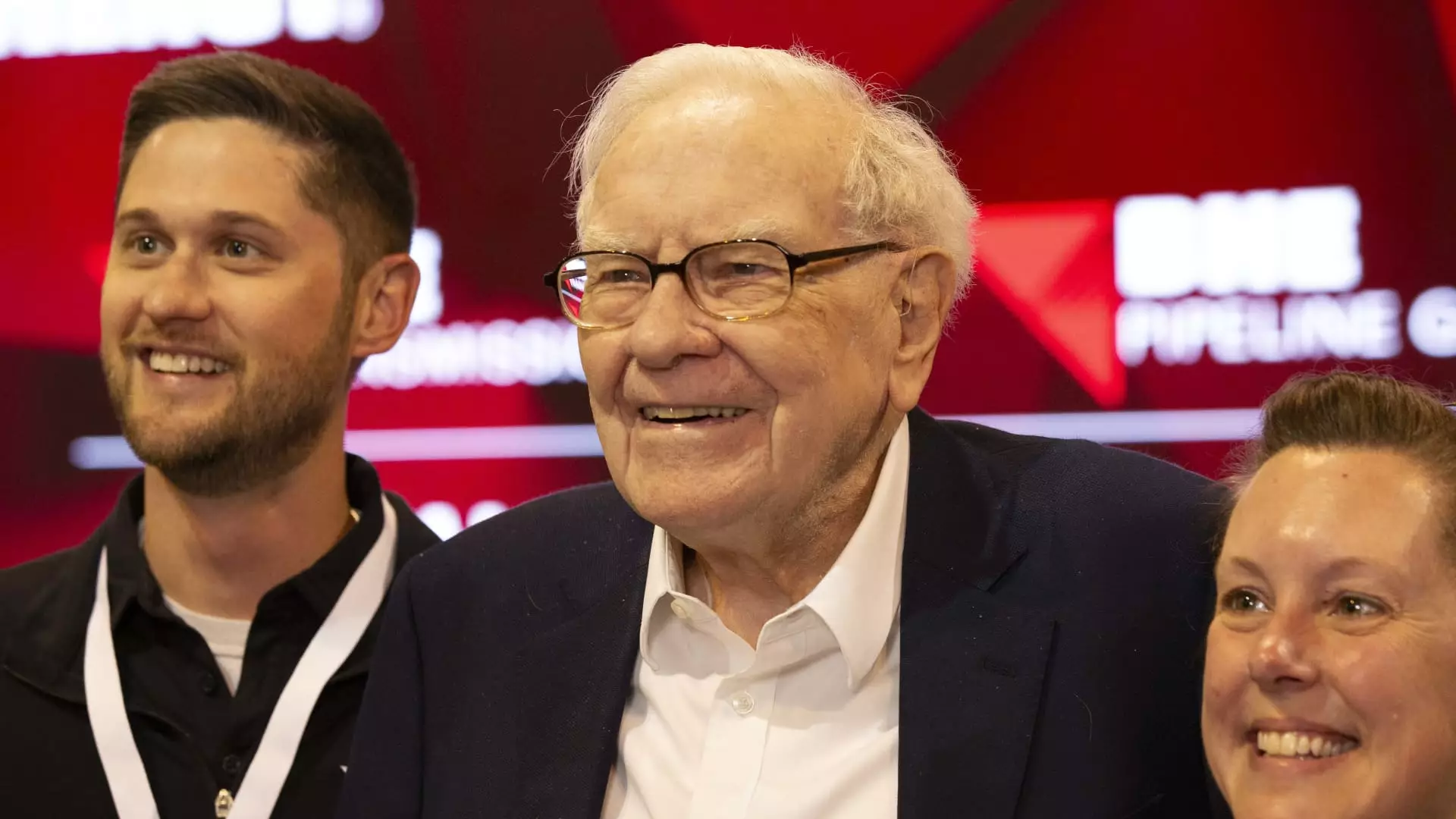Warren Buffett’s Leadership in Times of Challenge: Shareholder Update and Market Perspectives

Warren Buffett, the legendary investor commonly known as the “Oracle of Omaha,” is preparing to engage with shareholders and admirers amid a backdrop of evolving market dynamics. As he gears up to release his highly-anticipated annual letter to shareholders, which will be unveiled alongside Berkshire Hathaway’s fourth-quarter earnings report, the investment community is abuzz with speculation about what insights he will share. These disclosures, taking place on a Saturday morning at 8 a.m. ET, will shed light not only on Berkshire Hathaway’s performance but also on the broader implications of recent global events, including a fresh trade war and devastating wildfires in California.
One of the most pressing issues on the minds of investors is the financial impact of the catastrophic wildfires sweeping through California. While Berkshire Hathaway does not significantly operate in California, its extensive reinsurance sector could grapple with monumental losses due to the spiraling costs associated with these natural disasters. Estimates suggest that the insured losses could exceed $40 billion, raising concerns regarding the extent of Berkshire’s exposure.
Industry analysts have been scrutinizing the company’s earnings report for any revelations related to the wildfires. For instance, UBS analyst Brian Meredith estimates Berkshire’s reinsurance operations might incur around $1 billion in losses, with additional fines possible from Geico, the automobile insurance subsidiary, known for its considerable presence in California. By bringing these risks into the conversation, Buffett could lend clarity to the scale of the wildfires’ impact not only on Berkshire but on the insurance sector more broadly, which is bracing for one of the costliest wildfire seasons in U.S. history.
Another critical area for analysis in Buffett’s forthcoming address is the ramifications of President Trump’s aggressive tariff policies. Reaction to these trade tensions, particularly with China and North American partners, has ripple effects that could influence the earnings of several companies within Berkshire’s portfolio. Buffett has previously labeled tariffs as a “tax on consumers,” expressing concerns that such policies could exacerbate inflation and adversely affect global commerce.
As investors await deeper commentary from Buffett, they remain alert to how these tariffs have shaped the operations of Berkshire’s portfolio companies — from those impacted by lumber import challenges to industries reliant on steel and aluminum. Shareholders will undoubtedly be keen to hear whether Buffett perceives these tariff policies as temporal disruptions or as larger trends that could shape market behaviors long-term.
In an unexpected turn of events, Buffett has been quietly divesting shares from companies like Bank of America, which has catalyzed conversation regarding his investment strategy. With Berkshire’s stock sales outpacing stock purchases for the past nine quarters, critics have begun to question whether this exodus signals a bearish outlook on the stock market from the investment mogul himself. By reducing the Bank of America stake below the 700 million shares acquired through warrants, speculation arises that Buffett may be anticipating more headwinds ahead, leading to further sell-offs.
Berkshire Hathaway’s cash reserves have grown astonishingly, surpassing the $300 billion mark in the third quarter of 2024. This accumulation of capital prompts inquiries about Buffett’s investment philosophy; it’s plausible that he perceives current valuations as unsustainable, imploring caution amid prevailing market exuberance.
As the Berkshire conglomerate navigates turbulent waters, it’s increasingly evident that succession planning is a paramount concern for Buffett. By executing significant deals, like acquiring the remaining stake in Berkshire Hathaway Energy, Buffett is positioning the company for a seamless transition. The moves are not merely administrative; they signal a deliberate effort to clear any complications from the balance sheet, strengthening the foundation for incoming CEO Greg Abel.
Buffett’s leadership has imbued Berkshire Hathaway with a unique blend of integrity and investment acumen. As he facilitates operational transitions, it remains to be seen how Abel will interpret Buffett’s legacy and adapt his strategies in an ever-changing economic landscape.
As the investment community anticipates Buffett’s forthcoming insights, they are watching for narratives that could reveal opportunities amid challenges. The convergence of wildfires, tariffs, and strategic divestitures illustrates a complex market environment. Buffett’s reflections will undoubtedly provide a guiding lens to navigate the unwritten chapters of Berkshire Hathaway’s story in the coming year. In a climate of uncertainty, Buffett’s wisdom continues to resonate deeply as investors seek clarity from the Oracle of Omaha.





